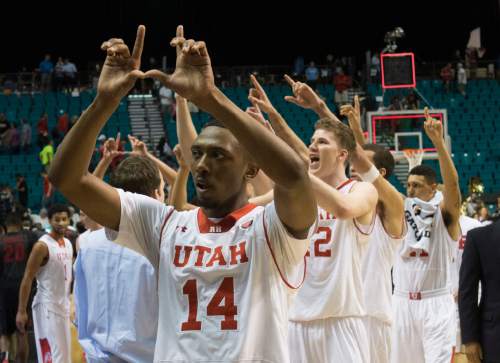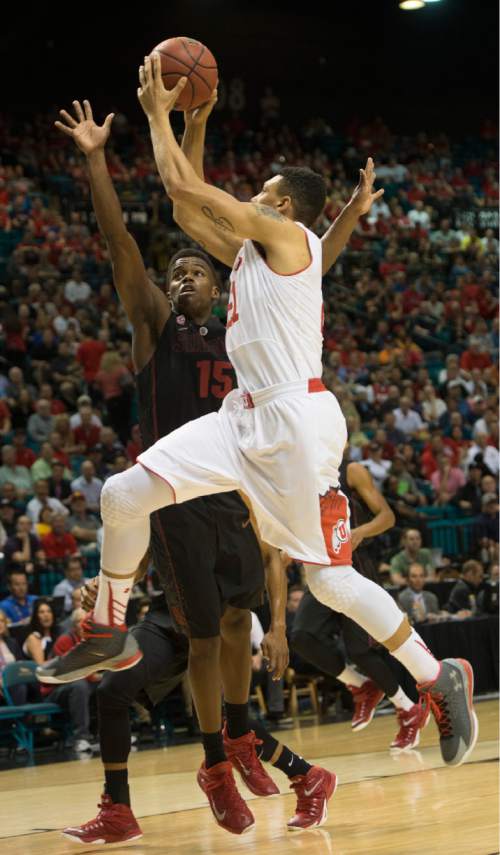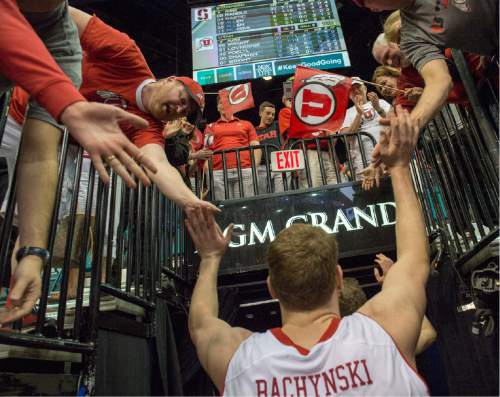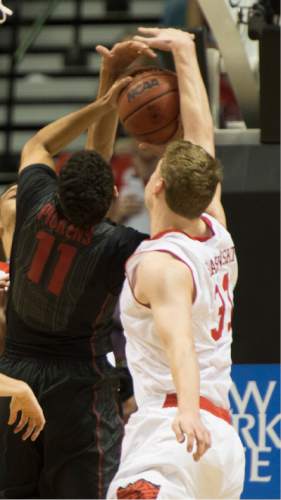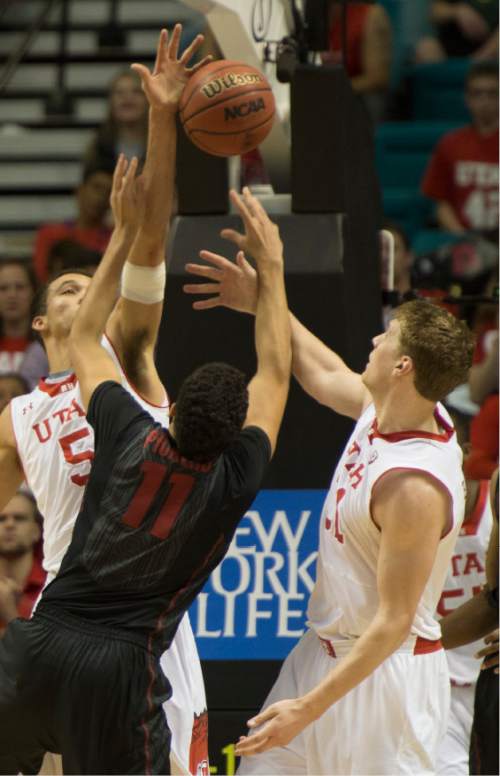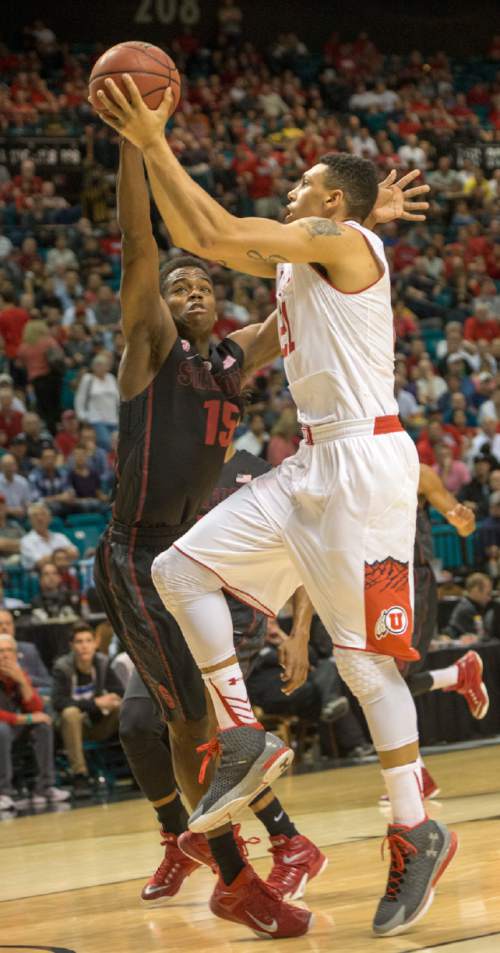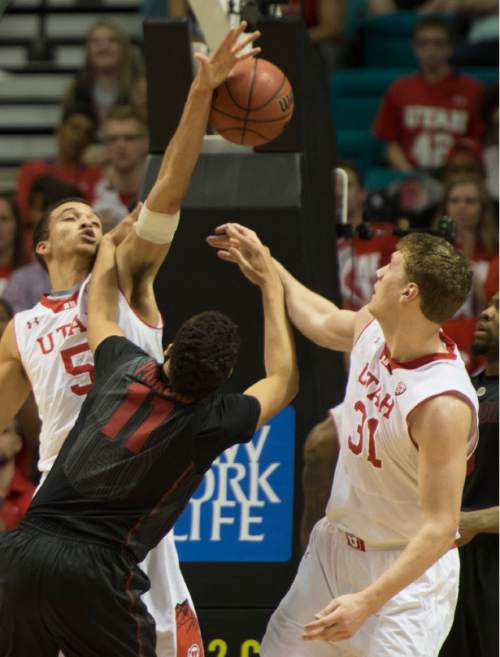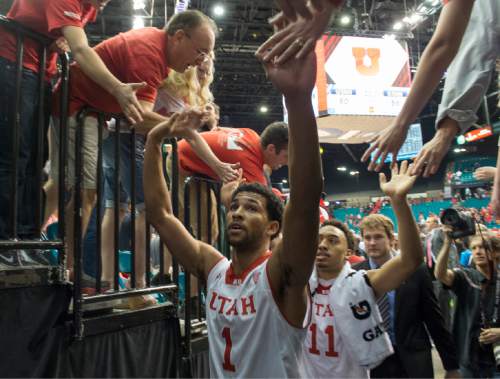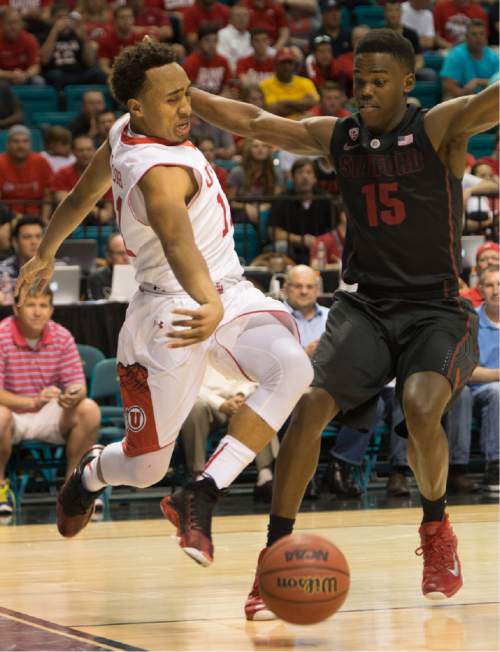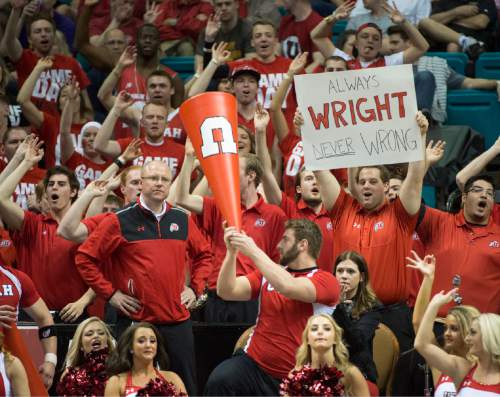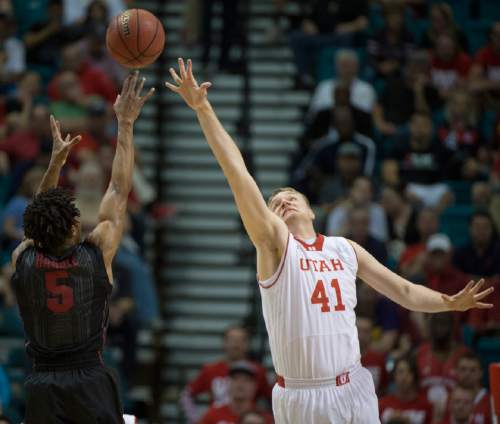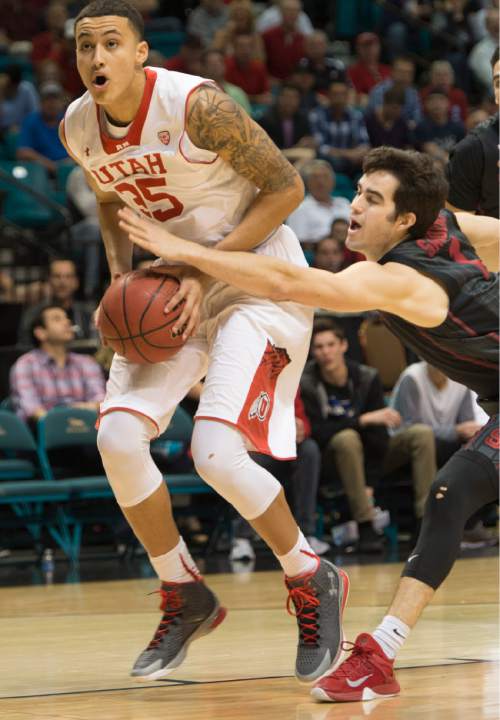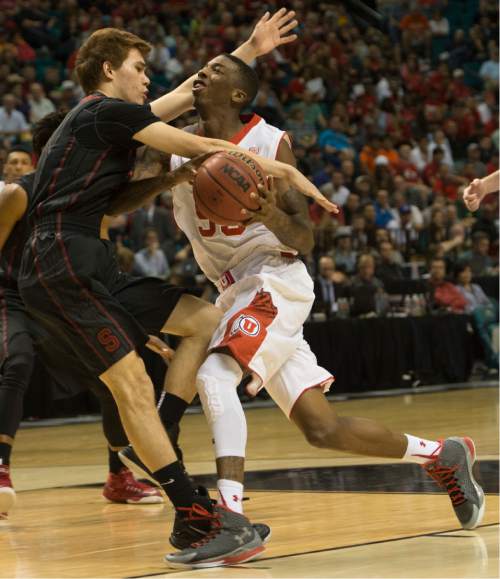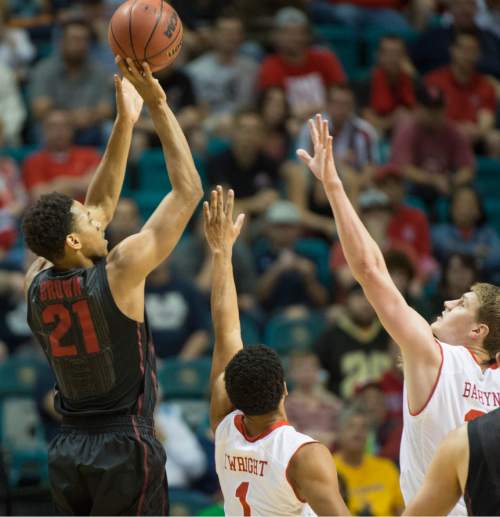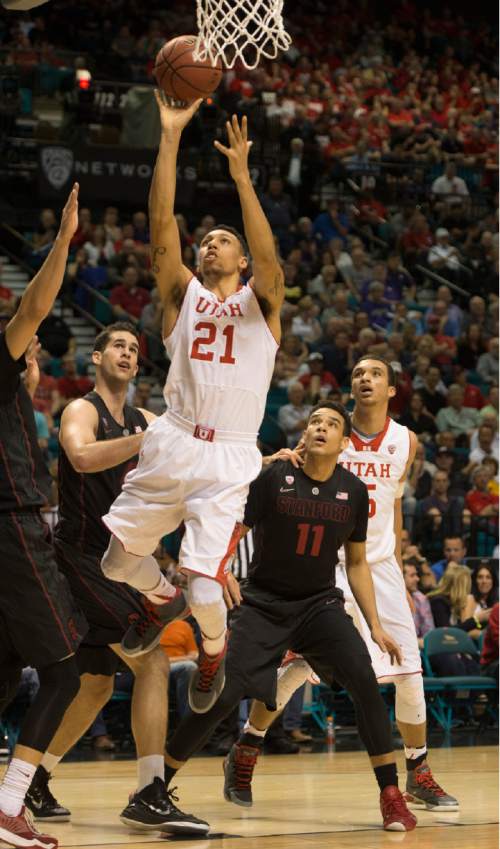This is an archived article that was published on sltrib.com in 2015, and information in the article may be outdated. It is provided only for personal research purposes and may not be reprinted.
Las Vegas
Coming into this Pac-12 tournament, everybody associated with Utah's basketball program was hoping — secretly or otherwise — that Delon Wright would have an opportunity in the semifinals to prove himself more worthy of the conference's Player of the Year award than the actual winner, Oregon's Joseph Young.
Wright will get that chance, thanks to everything he and his teammates did against Stanford.
Just when the Utes were struggling, Wright became their stabilizing force. Wright's scoring never will tell the whole story of his game, but he delivered a bunch of points when the No. 3-seed Utes needed them in an 80-56 quarterfinal victory at the MGM Grand Garden Arena.
Beginning late in the first half when Utah trailed by eight, Wright produced 13 of his 20 points. As usual, he did a lot of everything else, finishing with seven rebounds, five assists and three blocked shots.
Nobody who's aware only of the final score would believe how Utah struggled at times in the first half, which is why Wright became so valuable — with considerable assistance from Jordan Loveridge and Jakob Poeltl, among others.
This was the kind of assertive performance the Utes needed from Wright, at just the right time. If not for their strong showing after Stanford took a 39-34 halftime lead, the Utes would have wobbled into next week's NCAA tournament with four losses in six games.
As it is, they seemingly have rediscovered the traits that enabled them to dominate a lot of their Pac-12 opponents. Utah (24-7) defended Stanford ferociously in the second half, pounded the boards and played much more efficiently on offense. The No. 6-seed Cardinal, having been extended to the buzzer by Washington in Wednesday's opening round, made only 6 of 24 shots from the field in the second half.
"When you play as hard as we did defensively, the rim opened up offensively," said Ute coach Larry Krystkowiak.
Poeltl's role on both ends of the court was vital. The freshman center played barely five minutes before going to the bench with his second foul, having produced two points. He scored 14 points in the second half.
In the first half, the Utes had gone up 25-20 on Isaiah Wright's 3-pointer, but that's when their offensive struggles took hold. Stanford's 17-2 run finally was answered by Delon Wright's 3-pointer and Loveridge's drive, before Randle's two free throws gave Stanford its five-point edge.
So even with Utah's scoring struggles, defense and rebounding ultimately were the bigger problems in the first half.
The second half started promisingly for the Utes, though. Poeltl asserted himself by accounting for their first five points, and Delon Wright's 3-pointer sent them ahead to stay. Utah made 8 of 12 shots from 3-point range in the second half, taking command of this game — and making up for all of those little inside shots the Utes tend to miss.
As long as they keep playing in this tournament, the Utes will have opportunities to avenge some percentage of their five losses in Pac-12 play. That's another way of saying that semifinalists Oregon, Arizona and UCLA all beat the Utes in January or February.
Oregon comes first. The No. 2-seed Ducks, who downed Colorado 93-85 in a quarterfinal game Thursday behind Young's 30 points, took a 69-58 win over the Utes last month in Eugene.
The Utes held Young to 14 points on 5-of-16 shooting in the teams' only regular-season meeting, but Dillon Brooks scored 19 for Oregon.
In any case, Wright's teammates will be motivated to show that he deserved the award over Young by knocking the Ducks out of the tournament.
Utah's program has come a long way since March 2013, when the No. 10-seed Utes were surprise semifinalists in this tournament. They posted two upsets before running into No. 3 Oregon and losing 64-45. In that case, Oregon responded well to a loss at Utah at the end of the regular season.
The Utes would love to do the same, two years later.
Twitter: @tribkurt


